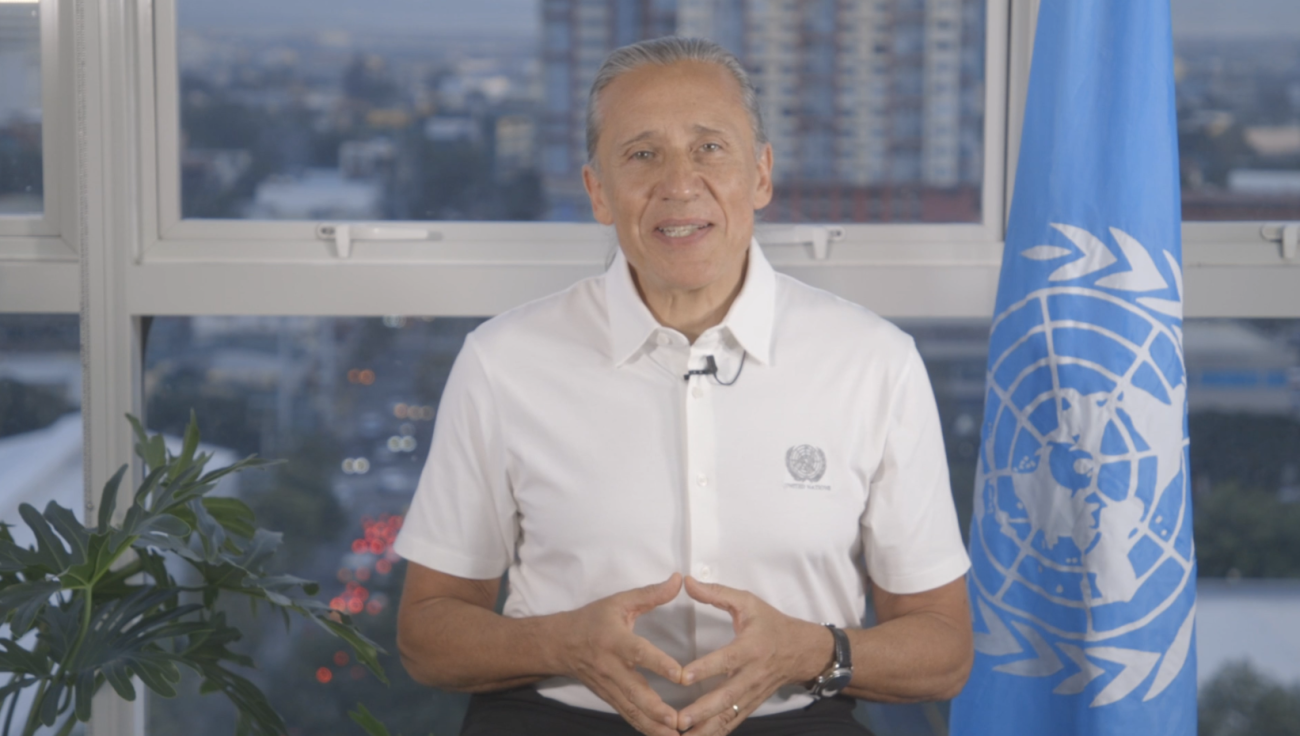Watch the video message here.
The text of the Message of UN Resident Coordinator in the Philippines for the Signing of the Joint Programme to Reduce Teenage Pregnancies follows:
On November 15, as the global population touched 8 billion, a girl born in Manila was declared as the symbolic eight billionth person in the world.
This event is a landmark global moment.
But at the same time, it raises concerns about the world’s carrying capacity to support so many lives in a manner that every person deserves.
High birth rates are particularly worrying in the Philippines…. not least because they are being recorded among minors.
The Philippines has one of the highest teenage pregnancy rates among ASEAN member states.
Early childbearing may result in poor health outcomes.
As we know, pregnant adolescents are less likely to complete higher education and have lesser ability to earn more income over the course of a lifetime.
Teenage mothers are more likely to experience violence and depression that can increase the risk of mental disorders.
Mothers with poor maternal health are more likely to give birth to a “low birth-weight baby”.
And this “low birth-weight baby” will grow as a stunted child, a stunted teenager, and finally to a malnourished pregnant woman who, in turn, has another low-birth-weight baby…. and the cycle persists through generations.
So, addressing this fundamental development problem is not only addressing a critical public health issue, but also saving lives and reinvigorating a society.
So, the decision of the Republic of Korea and the Government of the Philippines to engage in such transformative initiative deserves all the recognition of the United Nations because it represents a concrete investment in the Sustainable Development Goals.
We are also grateful to the Department of Health and the Korea International Cooperation Agency (KOICA)-, for their trust in the United Nations, as the main implementing partners.
Three experienced UN agencies -United Nations Fund for Population (UNFPA), the United Nations Children's Fund (UNICEF) and the World Health Organization (WHO) are bringing all their global knowledge and best practices to make of this programme a great success.
We thank Korea for its vision in building this meaningful alliance. This joint programme resonates with the Republic of Korea’s New Southern Policy (NSP) Vision of a “people-centered community of peace and prosperity” founded on the sustainable development goals or SDGs.
We are also proud of joining the Department of Health in reaching critical areas. This joint programme will be implemented in Southern Leyte and Samar, in Eastern Visayas, recognizing that those areas are seriously impacted by teenage pregnancy and inadequate reproductive health services.
As we know, this joint programme also calls for the right to education, knowledge, supportive environment and structures, and adolescent-friendly services delivered through participatory, community-based, and disaster-proof interventions.
I am proud to mark the launch of this joint programme with all of you and I have high hopes that it will significantly contribute to national and local government efforts to address adolescent pregnancies.
We celebrate this new partnership with the Department of Health and we thank the people of Republic of Korea and KOICA for this meaningful and timely support.
Thank you





